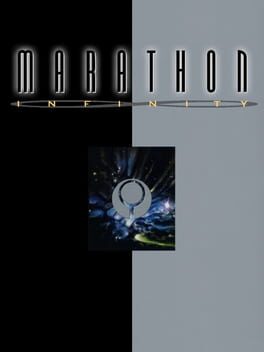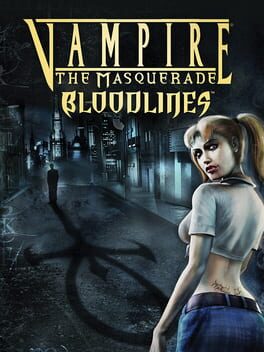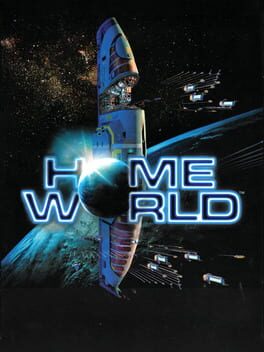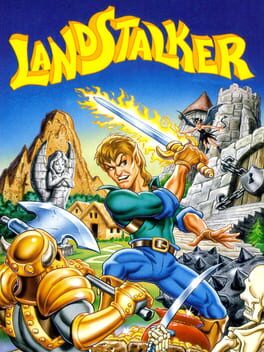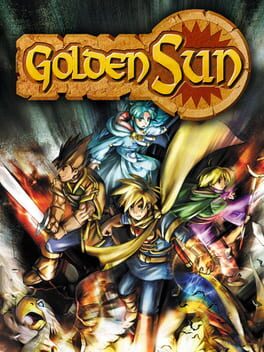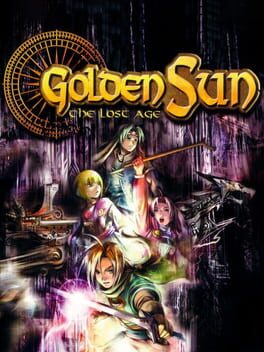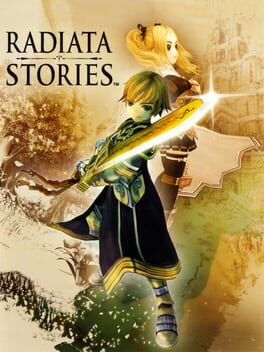Durandana
107 reviews liked by Durandana
Xenogears
1998
Xenogears
1998
I hated my time with this game for like 35 hours
It's filled with so many bad game design decisions, extremely bad pacing at the start after the intro segment and the game absolutely never tells you where to go throught all of it, gears combat is a fucking unfun mess, like half the cast only has 1 moment to shine and never again, disc 2 completely changes the entire gameplay structure to the point it's a visual novel without even the visual part it's just scrolling text, there aren't that many music tracks so you're stuck hearing the same tracks over and over again that have some annoying segments in them.
And even then.
After all of this.
It is still.
The Perfect Work.
It's filled with so many bad game design decisions, extremely bad pacing at the start after the intro segment and the game absolutely never tells you where to go throught all of it, gears combat is a fucking unfun mess, like half the cast only has 1 moment to shine and never again, disc 2 completely changes the entire gameplay structure to the point it's a visual novel without even the visual part it's just scrolling text, there aren't that many music tracks so you're stuck hearing the same tracks over and over again that have some annoying segments in them.
And even then.
After all of this.
It is still.
The Perfect Work.
Marathon Infinity
1996
You play as a philosophical and literal zombie at the whims of gods who don't care. One of them is even funny.
I don't think in the 30 following years of FPS's we've come close to what Durandal and Infinity have done. The genre built upon power fantasies put you in the shoes of an enhanced human, a perfect killing machine, yet our actions are minimazed in the face of much superior opponents and literal reality-warping mechanisms. The power fantasy is dismantled and replaced by abstraction, upon which the Cyborg is a tool, and not even at all times fully aware of who is his master.
I don't think in the 30 following years of FPS's we've come close to what Durandal and Infinity have done. The genre built upon power fantasies put you in the shoes of an enhanced human, a perfect killing machine, yet our actions are minimazed in the face of much superior opponents and literal reality-warping mechanisms. The power fantasy is dismantled and replaced by abstraction, upon which the Cyborg is a tool, and not even at all times fully aware of who is his master.
Marathon Infinity
1996
If you've gotten this far in the Marathon trilogy, you already know the song and dance. Enter into a weird maze, hunt for terminals, shoot aliens, get lost in said maze, find another terminal or absurdly positioned teleporter and get to the next level.
And yet, despite Marathon Infinity being almost identical to Marathon 2: Durandal in many (technical/gameplay/artistic) regards, it has this incredible mysticism behind it. Almost certainly within the enigma wrapped in a mystery storytelling that's so strange, so intent on you not figuring it out that you have no choice but to go deeper down the rabbit hole.
Once I beat the last level and the final screen started rolling it didn't quite feel like the 'end' of Marathon (and that's not because of the upcoming soft reboot), but instead like I was presented with a key to comprehending the universe-bending, philosophically inclined, and childishly humoured nature of what Marathon is... at all? Afterwards I spent the next few hours going through the marathon.bungie.org website, piecing together the terminal entries I had already read with the ones I had missed, alongside a plethora of community interpretations, scattered clues, and veiled references in the games Bungie produced for the nearly 30 years afterwards.
That exploration not only within the game, but without is something no other piece of fiction has ever replicated for me, and I cannot get enough of this trilogy's endless bullshit.
Of course, there's still a game attached to the absurd story going on, and it's pretty damn good! The environments are decently varied, enemies are still as fun and threatening to fight as always, with the added sauce of suped-up BOBs both fighting on your side and against. The final level is absolutely my favourite level in the franchise, with how it puts together all of the best bits of Marathon (listening to the terminals for advice, your own exploration, a bunch of slick combat encounters, and gorgeously strange environment art) into an epic conclusion.
4.5/5 - "See ya starside."
And yet, despite Marathon Infinity being almost identical to Marathon 2: Durandal in many (technical/gameplay/artistic) regards, it has this incredible mysticism behind it. Almost certainly within the enigma wrapped in a mystery storytelling that's so strange, so intent on you not figuring it out that you have no choice but to go deeper down the rabbit hole.
Once I beat the last level and the final screen started rolling it didn't quite feel like the 'end' of Marathon (and that's not because of the upcoming soft reboot), but instead like I was presented with a key to comprehending the universe-bending, philosophically inclined, and childishly humoured nature of what Marathon is... at all? Afterwards I spent the next few hours going through the marathon.bungie.org website, piecing together the terminal entries I had already read with the ones I had missed, alongside a plethora of community interpretations, scattered clues, and veiled references in the games Bungie produced for the nearly 30 years afterwards.
That exploration not only within the game, but without is something no other piece of fiction has ever replicated for me, and I cannot get enough of this trilogy's endless bullshit.
Of course, there's still a game attached to the absurd story going on, and it's pretty damn good! The environments are decently varied, enemies are still as fun and threatening to fight as always, with the added sauce of suped-up BOBs both fighting on your side and against. The final level is absolutely my favourite level in the franchise, with how it puts together all of the best bits of Marathon (listening to the terminals for advice, your own exploration, a bunch of slick combat encounters, and gorgeously strange environment art) into an epic conclusion.
4.5/5 - "See ya starside."
As rickety and often barely functional yet ultimately powerful as its titular protagonists. Less than an hour into this replay, I got stuck inside a door and had to reload a save to get out, had a guard I’d intimidated into passivity turn hostile again when he rounded a corner and witnessed an unconscious, bedridden patient aggressively A-pose when I fed on his doctor, but as ever, I stick with it regardless because virtually everything else about the game is so enthralling. The ladies call it “oh God!,” but you can call it Vampire the Masquerade – Bloodlines.
Paradoxically, VTMB’s main strength is probably its immersion. No amount of glitchiness could be enough to prevent anyone from feeling smothered in the atmosphere of dark urban decay it depicts, even after several playthroughs; this was my fourth since I was little and I still find myself wary of areas which I should know by now have no enemies or other dangers, because (appropriately, considering the game’s premise) there’s always a pervasive sense that there could be. Something less obvious that contributes to this is the fact that it’s one of few RPGs with a contemporary setting – it’s easier to feel on edge when familiar locales like a beachside hotel, a hospital or an arcade are supernaturally twisted into something uncomfortable. These aspects join hands with a soundtrack which sounds like what you’d see if you peered into the mind of any of this portrayal of LA’s aimless drifters, grungy ambient sound effects, imposing neo-Gothic architecture and some lovely, imagination-sparking skyboxes to make each of its four small but dense hub worlds that much more of a joy to explore, even when the later portions take their infamous downturn in terms of options for resolving quests and general rushed-ness.
It's a pity that the endgame’s so combat-orientated given that the combat system, despite being somewhat flexible and satisfying in small doses thanks to some of the more out-there vampiric powers, generally isn’t engaging enough to maintain long-term interest. One area in which VTMB never falters, though, is in terms of character interactions. Stellar voice acting and facial animations unique in their sheer expressiveness, true even of NPCs which most players might never even encounter, don’t just bring its cast to (un)life but also make the dialogue system feel more natural, too. As in the first two Fallout games with which Troika shared several staff, NPCs’ demeanour towards you is telegraphed diegetically via their facial expressions and, although speech checks are highlighted by a bunch of fancy fonts, there’s no indication of whether you’ll succeed at them or whether doing so’ll even result in a beneficial outcome. Only on my third playthrough did I learn that you can lock yourself out of getting the Downtown haven if you’re too cheeky to LaCroix, with no warnings next to any of the dialogue options that result in this. It’s all too rare and all too cool that an RPG pulls the rug out from under you like this and lets you get whisked away on a domino effect of your poor decisions, however minor they seem at the time.
What accentuates this even further is the diversity between the clans you can pick at the start. Playing a Malkavian or Nosferatu in particular’s so differentiated from those with their heads and/or skin screwed on that it’s almost like playing the game for the first time again; as above, it wasn’t until this replay that I learned you could skip the tutorial and miss out on a free lockpick until I realised the hard way that I don’t have as good a grasp on the voices in my Malk’s head as I’d thought. It occasionally feels like every character needing to be voiced restricted the lengths Troika could go to in integrating unique interactions for these oddball clans, but the fact that there’s one entirely optional clan which alters every single line of player dialogue in the game and at least one other which fundamentally changes how you have to navigate the hubs is really impressive, no less for the restraint this must’ve taken than for its impact on gameplay and replay value – again, reminiscent of low-INT builds in Fallout 1 and 2.
You’ll probably have noticed that this review’s got a consistent thread running through it of getting slapped in the face with things I didn’t know were in the game before, and that’s because a core draw of VTMB is discovery. It’s why I’ve not dug into how juicy much of its dialogue is, the surprising amount of other World of Darkness tabletops it draws from beyond just Vampire or the frequency with which it reminds you what a vivid imagination its character designers/artists have, because it all deserves to learnt firsthand. That said, I did make a tiny collage to drive home the latter point: these four characters all live on roughly the same street. The amount of effort it must’ve taken to conceptualise a cast so varied’s almost as mad to think about as the fact that VTMB is old enough now to arguably function as period piece.
This being as true of the time in which it released as of its contents is what led to this revisit in the first place. Having played and enjoyed Cyberpunk 2077 and Starfield in quick succession, both of which feature only about as many bugs across an entire playthrough as any individual hour of this (if even), I find it hard to imagine a world where the public wouldn’t sentence VTMB to the same death-by-hyperbole if it were to come out now, without the reputational fortune of being long solidified as a cult classic for epic gamers only. It turns out that releasing in the same week as Half Life 2, MGS3 and Halo 2 was a blessing in disguise, if only because this was well before the Camarilla saw fit to punish us with social media monetisation and how it's helped foster vague, directionless outrage about games most of those perpetuating it have no intention of playing anyway as its own micro-industry.
Forever glad that people were able to see the forest for the trees in this particular case, for whatever reason, and recognise that not even bugs on the level of crashing the game when you press the screenshot button or a penultimate boss in three out of four story routes constituting what may genuinely be the worst boss fight in any video game are enough to sink the one-of-a-kind RPG that VTMB is. Take the plunge into its supernatural underworld, look forward to making mistakes along the way and remember: don’t open it.
Paradoxically, VTMB’s main strength is probably its immersion. No amount of glitchiness could be enough to prevent anyone from feeling smothered in the atmosphere of dark urban decay it depicts, even after several playthroughs; this was my fourth since I was little and I still find myself wary of areas which I should know by now have no enemies or other dangers, because (appropriately, considering the game’s premise) there’s always a pervasive sense that there could be. Something less obvious that contributes to this is the fact that it’s one of few RPGs with a contemporary setting – it’s easier to feel on edge when familiar locales like a beachside hotel, a hospital or an arcade are supernaturally twisted into something uncomfortable. These aspects join hands with a soundtrack which sounds like what you’d see if you peered into the mind of any of this portrayal of LA’s aimless drifters, grungy ambient sound effects, imposing neo-Gothic architecture and some lovely, imagination-sparking skyboxes to make each of its four small but dense hub worlds that much more of a joy to explore, even when the later portions take their infamous downturn in terms of options for resolving quests and general rushed-ness.
It's a pity that the endgame’s so combat-orientated given that the combat system, despite being somewhat flexible and satisfying in small doses thanks to some of the more out-there vampiric powers, generally isn’t engaging enough to maintain long-term interest. One area in which VTMB never falters, though, is in terms of character interactions. Stellar voice acting and facial animations unique in their sheer expressiveness, true even of NPCs which most players might never even encounter, don’t just bring its cast to (un)life but also make the dialogue system feel more natural, too. As in the first two Fallout games with which Troika shared several staff, NPCs’ demeanour towards you is telegraphed diegetically via their facial expressions and, although speech checks are highlighted by a bunch of fancy fonts, there’s no indication of whether you’ll succeed at them or whether doing so’ll even result in a beneficial outcome. Only on my third playthrough did I learn that you can lock yourself out of getting the Downtown haven if you’re too cheeky to LaCroix, with no warnings next to any of the dialogue options that result in this. It’s all too rare and all too cool that an RPG pulls the rug out from under you like this and lets you get whisked away on a domino effect of your poor decisions, however minor they seem at the time.
What accentuates this even further is the diversity between the clans you can pick at the start. Playing a Malkavian or Nosferatu in particular’s so differentiated from those with their heads and/or skin screwed on that it’s almost like playing the game for the first time again; as above, it wasn’t until this replay that I learned you could skip the tutorial and miss out on a free lockpick until I realised the hard way that I don’t have as good a grasp on the voices in my Malk’s head as I’d thought. It occasionally feels like every character needing to be voiced restricted the lengths Troika could go to in integrating unique interactions for these oddball clans, but the fact that there’s one entirely optional clan which alters every single line of player dialogue in the game and at least one other which fundamentally changes how you have to navigate the hubs is really impressive, no less for the restraint this must’ve taken than for its impact on gameplay and replay value – again, reminiscent of low-INT builds in Fallout 1 and 2.
You’ll probably have noticed that this review’s got a consistent thread running through it of getting slapped in the face with things I didn’t know were in the game before, and that’s because a core draw of VTMB is discovery. It’s why I’ve not dug into how juicy much of its dialogue is, the surprising amount of other World of Darkness tabletops it draws from beyond just Vampire or the frequency with which it reminds you what a vivid imagination its character designers/artists have, because it all deserves to learnt firsthand. That said, I did make a tiny collage to drive home the latter point: these four characters all live on roughly the same street. The amount of effort it must’ve taken to conceptualise a cast so varied’s almost as mad to think about as the fact that VTMB is old enough now to arguably function as period piece.
This being as true of the time in which it released as of its contents is what led to this revisit in the first place. Having played and enjoyed Cyberpunk 2077 and Starfield in quick succession, both of which feature only about as many bugs across an entire playthrough as any individual hour of this (if even), I find it hard to imagine a world where the public wouldn’t sentence VTMB to the same death-by-hyperbole if it were to come out now, without the reputational fortune of being long solidified as a cult classic for epic gamers only. It turns out that releasing in the same week as Half Life 2, MGS3 and Halo 2 was a blessing in disguise, if only because this was well before the Camarilla saw fit to punish us with social media monetisation and how it's helped foster vague, directionless outrage about games most of those perpetuating it have no intention of playing anyway as its own micro-industry.
Forever glad that people were able to see the forest for the trees in this particular case, for whatever reason, and recognise that not even bugs on the level of crashing the game when you press the screenshot button or a penultimate boss in three out of four story routes constituting what may genuinely be the worst boss fight in any video game are enough to sink the one-of-a-kind RPG that VTMB is. Take the plunge into its supernatural underworld, look forward to making mistakes along the way and remember: don’t open it.
Baldur's Gate 3
2020
Signalis
2022
A lot of games have style, it’s not exactly rare for a game to have its own aesthetic and vibe. But I do think it is rare for a game to so confidently present itself in such a unique form. Colours, shapes, texts fonts, editing, music, sound design, every element of the way Signalis presents itself builds into a wholly unique identity. And this helps immensely to convey the intended feeling of confusion and oppression.
Without this, Signalis would almost be irrelevant. Its 90s survival game mechanics are fun, but we do already have 90s survival games. Its plot is cryptic. Its themes are carried by sensory impact.
So it all comes back to the way the game presents itself. And it’s so effective that it makes Signalis special.
Without this, Signalis would almost be irrelevant. Its 90s survival game mechanics are fun, but we do already have 90s survival games. Its plot is cryptic. Its themes are carried by sensory impact.
So it all comes back to the way the game presents itself. And it’s so effective that it makes Signalis special.
Signalis
2022
Homeworld
1999
Homeworld is so fucking good. This game is literally everything I want in a game and it came out over two decades ago. Its a phenomenal strategy game with an amazing story and fun missions. The soundtrack is absolutely phenomenal and the sound design is so damn good for the time. Everything about homeworld makes it one of the best RTS games ever plus the modding scene is really good and multiplayer is fun if you can find someone to play with you. The remasters are really good too so you might as well just get them!

